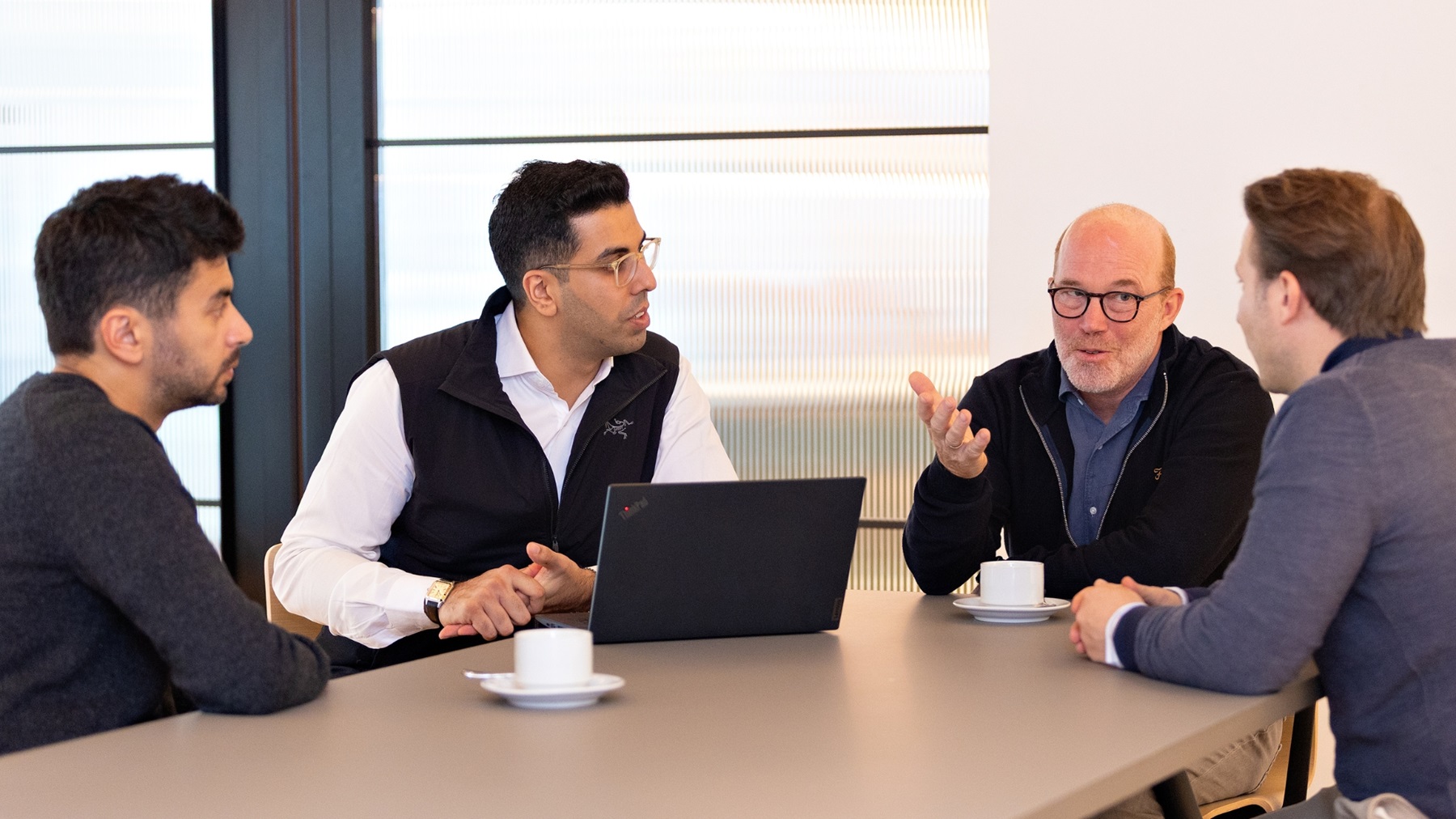7 Ways Investors & Founders Can Work Together to Steer a Company to Success
As investors, we are much less influential than founders usually think. We have very few options to actually impact a business. Ouch. There, I said it. You founders are driving the car, we’re in the backseat.
Yet running a company is difficult because it’s not always clear where you really are until it’s right in your face - possibly painfully so. And sometimes, that pain comes from being stuck. When you’re stuck and nothing seems to be moving, a gentle yet crucial nudge can be a good way to set things in motion again. That’s where investors can really help.
Your intervention toolbox
Over the years I have come to believe there are seven interventions that investors can encourage. When properly employed, they have the potential to drastically impact the course of a startup in a positive way. None are easy and there is no guarantee of success. But when nothing else helps, one (or more) of these seven tools could provide the breakthrough founders and investors are looking for. Here they are:
- Coaching
- Funding
- Hiring / Firing
- Relocation
- Business Development
- M&A
- Pivoting
Let’s look at them, one by one, illustrated with some examples.
Coaching
Considered the core of the investor-founder relationship, by definition a coach doesn’t execute a plan for success, but instead provides guidance to those who do. This position is sometimes hard for investors given their vested interest in the outcome. If done with respect and care, coaching can build a trusted relationship that will lead to growth on a personal level. That then often translates into growth for the company. So, in the end, everyone should have a coach. Sometimes that coach is your investor, sometimes a board member, sometimes someone completely different.
Some of our most successful founders understand that their personal development has a unique and defining impact on the company. Julian Teicke from wefox goes one step further and makes it a priority for everyone on the team. The results speak for themselves. We’re all born to grow, and time and again I learned the lesson to never underestimate the potential that finding the right coach for a founder or a founding team has.
Funding
This is an obvious one. Raising money? Sounds like a great idea! But it’s more difficult than that. Raising money raises expectations: on performance, on how your company works and also what success looks like. But by carefully selecting partners, not investors, you can effectively unlock your business’ next growth stage.
When Cherry Ventures funded Tourradar in 2016, they came with a wide range of experience from founding and growing Zalando. This knowledge centered around online marketing was of great use to Tourradar. Within months the team had reorganized and restructured all Google Ad accounts and was seeing tremendously better results.
Hiring / Firing
Bringing in fresh perspectives, new talent or a role that might have been missing will often change the energy in the company, especially if it is a senior person joining. There is no guarantee for success, but sometimes it brings a needed shift in dynamics to a founding team, product or go-to-market. It’s like when Dennis Rodman joined the Bulls. A great team can become stellar.
When Tide hired Oliver Prill as CEO and founder George Bevis stepped aside, this was a massive step towards taking the organization to the next level with great success. For many enterprise startups, the VP of Sales is THE crucial role. For two of our portfolio companies, Clausematch and Bitmovin, those hires were instrumental to reach new levels of revenue growth. They effectively refocused the organization by rallying behind the market or client segment that will take center stage.
Of course, also the opposite move is an option. Removing someone from the playing field will definitely change dynamics, shift focus and often free up energy that might have been tied up in conflict. This is especially true if the conflict is within the founding team.
In one of our first investments, a founding team of three was hard at work. It became clear after a while that their product wouldn’t work. The traction was just underwhelming. Next to a necessary pivot, it also became obvious that the dynamic within the founding team had shifted and turned sour.
After grappling with the decision for quite some time, trying an interim solution, one of the founders stepped out. This freed up a lot of energy that subsequently went into the business.
Relocation
This might sound strange, but of course it matters WHERE you are as an entrepreneur. A place gives you an environment, a network and serendipity. Often, changing the playing field will also change the game. So relocating a startup out of sunny - but remote - Ljubljana, Slovenia to less sunny - but well connected - New York might make all the difference.
It’s also a very difficult strategy to implement because the consequences can be profoundly personal. It puts added pressure on founders, families and the team (time zones, culture, communications), especially in early stages.
When our portfolio company Flaviar launched their business in Slovenia, their aim was to reinvent how alcoholic beverages are discovered. Relocating the management team to the US after graduating from YCombinator was a radical intervention. But it brought the team closer to their target group and industry as a whole. This then led to a new senior executive joining and, finally, US investors.
Business Development
As mundane as it may sound, the good old tactic of business development (BD) can lead to substantial results and unexpected outcomes. In contrast to sales, where you try to market known products to known markets, the goal of business development aims to venture out into new markets or try new products to broaden the piece of the pie you’re able to capture. It opens up new perspectives and can lead to a completely new approach, or even a slow pivot that totally reinvents the company.
The examples here are endless. Indoo.rs and Payworks were both acquired by a partner that originated out of BD. Bitmovin created a new business line purely based on “giving in” to customer requests. While young companies have to be careful with these temptations, as resources are scarce and the organization is fragile, sometimes it’s worth exploring. In the end, the purpose of a startup is to scale based on repeatable, predictable growth.
M&A
Selling a majority in your company is such a major change that it’s often a move of last resort. As an investor, this is a difficult task because (again) it needs the full support from founders to even start the process. However, it is often better than the alternatives and many founders actually underestimate its benefits.
You could end up with a strategic investor instead of a buyer. You could learn something about the market. Most notably, you could earn a lot of money and get a chance to get your next startup off the ground.
Even though most founders will have started that path with an audacious goal in mind, it’s important to remember that smaller exits can be financially rewarding. They can also free up time and energy to get back into the game with the benefit of lessons from the last attempt.
On the other hand, it is also worth considering buying other companies as a means of growth. This is something the best founders internalize and pursue strategically. Last but not least, it pays off to investigate the “M” in M&A.
In this case, look for competitors or complementary businesses to take your company to the next level. There are many more opportunities out there than you think. This could provide a refreshed strategic perspective that facilitates other moves like fundraising or hiring.
Speedinvest originated out of a circle of individuals that worked together at 3United, a mobile messaging company that was sold to Verisign in 2006 (!) for a whopping 55 million Euros. Just a few years before, that was unthinkable. The three companies that formed 3United (you get the name now?) were small local champions that had survived many ups and downs and were looking for an alternative route to success. Their merger turned out to be the right move, giving them scale, a range of products and also a common, attainable goal.
Pivoting
Pivoting is when you try to find product-market fit by keeping one part of your business, usually the market or product, and changing the other part. It is a drastic move, but some of the best companies have used it to open up new frontiers.
It’s also not trivial, as you and your investors are taking (another) bet, while preserving some of the investment that has gone into the company already. But if done right, it is a controlled intervention, that is a very valuable skill going forward, as markets are in constant change and the best companies adapt constantly.
Our portfolio company Pace started out as a surge-pricing engine for everything from shared mobility to hospitality. After a while, they realized that the platform approach focused on too many markets. So they started focusing on hospitality only which enabled them to streamline sales operations, increase customer value and grow substantially.
Bold moves are scary, but sometimes necessary
Growing a business, putting a dent into the universe, is hard. It might seem like an endless stream of smaller or bigger decisions that lead to an outcome. At some points taking a step back and considering options for bold steps is called for. And more often than not, there are more options than you might initially think. Good investors and founders would do well to remember that.
Learn more about the Speedinvest Platform+ team and sign up for our newsletters to get our exclusive content delivered straight to your inbox.












.svg)
